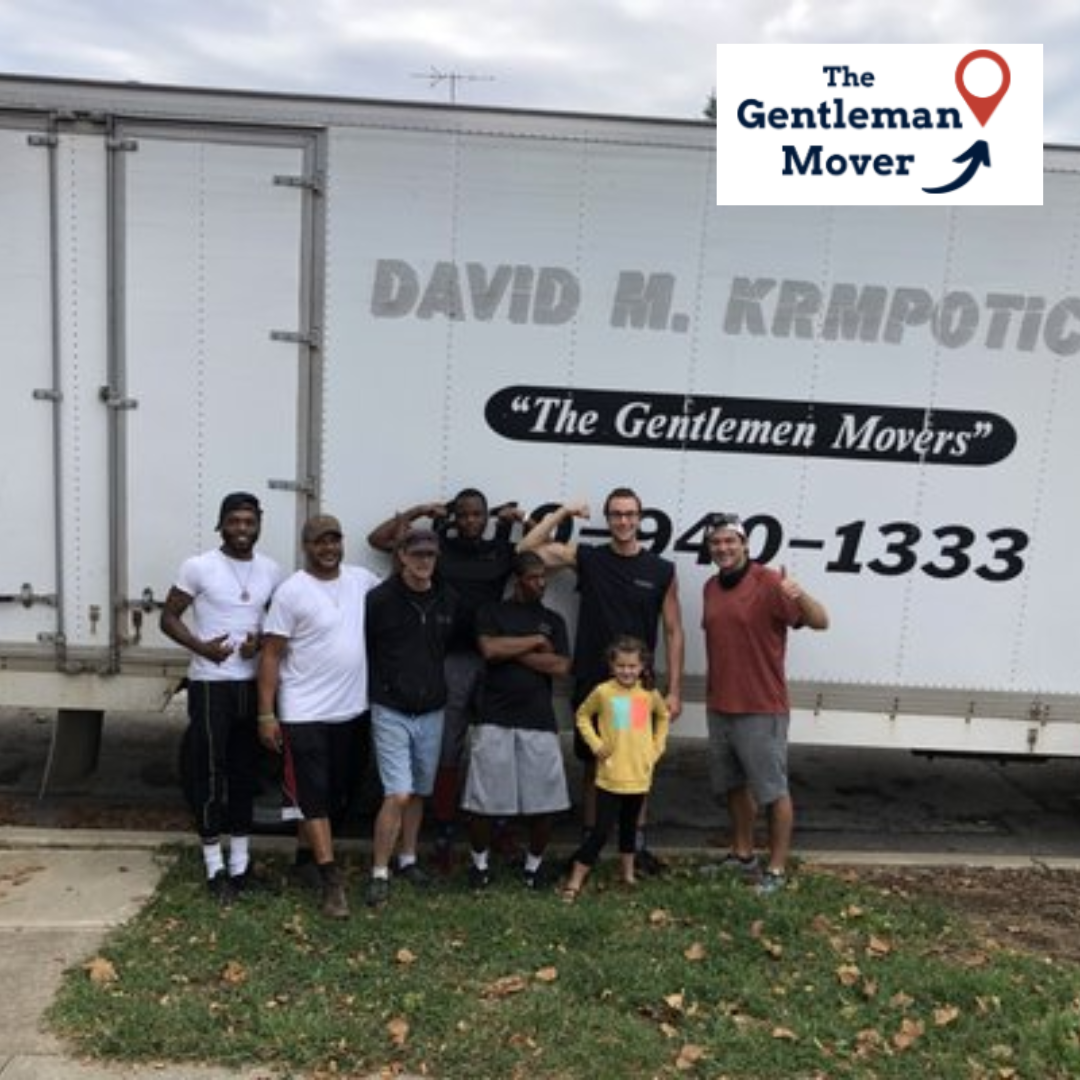Moving across Philadelphia often means facing narrow streets, historic homes, and plenty of logistics—but it doesn’t have to be overwhelming. The Gentleman Mover has earned its reputation for managing relocations with consistency, care, and attention to detail. Their method turns what could be a stressful day into one that feels smooth and well-organized. Whether it’s a family moving to the suburbs or someone relocating within Center City, their process focuses on planning, maintaining clear communication, and working efficiently as a team. In this guide, they share their practical approach to keep every Philadelphia move organized, stress-free, and on schedule.
Planning Your Philadelphia Move
Relocating involves many details, and creating a clear timeline serves as a roadmap to manage each task without losing focus. A well-structured schedule breaks the move into manageable steps—booking movers, setting up utilities, and updating your address. By setting realistic deadlines for each task, last-minute stress can be avoided, making the entire process more controlled and predictable.
Budgeting also plays a central role in a successful move. Philadelphia’s living costs vary by neighborhood, so setting a detailed budget early helps keep spending in check. Beyond moving company fees, there are often security deposits, utility activation charges, and initial grocery or supply expenses. Setting aside a small emergency fund helps cover unexpected costs, keeping financial strain out of the equation.
Philadelphia’s housing options range from charming rowhouses to sleek downtown apartments, each with a distinct feel and price range. Taking a methodical approach to neighborhood selection saves time and frustration. Factors like commute distance, access to public transportation, safety, and nearby amenities all play a part. Websites like Zillow and Trulia provide a good overview, but community forums and social media groups often share insights that statistics can’t capture. These local opinions help paint a clearer picture of what daily life looks like in each area.
Good planning isn’t only about staying on schedule—it’s about reducing uncertainty. By setting up a strong plan early, movers can stay organized and feel more confident as they start their new chapter in Philadelphia. Once the logistics are in place, attention naturally shifts to packing, which can make or break how smoothly the move goes.
Packing Tips for a Smooth Relocation
Efficient packing is the foundation of a successful move. It can be a big task, but breaking it into smaller steps helps reduce the pressure and keeps things manageable.
The first step is decluttering before packing begins. Sorting through belongings helps lighten the load and gives a fresh start in the new space. Donating or selling unused items not only reduces what needs to be moved but also helps cut down on moving costs. The less there is to transport, the faster and easier the move becomes.
Once the essentials are set aside, focus shifts to keeping everything safe and organized. Investing in sturdy moving boxes and high-quality materials like bubble wrap, packing paper, and durable tape is worth it. Cheap boxes can break under pressure, risking damage to fragile items. Each item should be individually wrapped and padded to prevent shifting within the box. Taking this extra care saves time and stress later when unpacking.
Organization is another key step that often gets overlooked. Labeling each box clearly—with both its contents and its destination room—makes unpacking far more efficient. Using color-coded markers can make it even easier: blue for the bedroom, green for the kitchen, and so on. When movers arrive at the new home, these visual cues make placement quick and accurate.
Another useful idea is packing a “first-day box” or essentials bag. This should include items like toiletries, clothes, medications, chargers, and important documents. Having immediate access to these basics prevents unnecessary searching through boxes at the end of a long moving day.
With proper materials, labeling, and organization, packing becomes more than just boxing items—it becomes a structured plan that sets the tone for the entire move. Once everything is packed securely, it’s time to explore which Philadelphia neighborhood feels most like home.
Exploring Philadelphia’s Neighborhoods
Philadelphia is a city made up of distinct neighborhoods, each with its own charm. Understanding what each area offers helps make the move more rewarding and less stressful.
Old City, for example, is a destination for those drawn to historic architecture and cobblestone streets. Living here places residents near Independence Hall and other iconic landmarks, offering a daily connection to the city’s rich past. The streets blend history and modern convenience, creating a neighborhood full of character.
Fishtown, on the other hand, brings a completely different atmosphere. Known for its artistic vibe and lively social scene, it’s popular among young professionals who enjoy a balance of work, creativity, and nightlife. The food and art scenes thrive here, with trendy restaurants, coffee shops, and galleries adding to its appeal.
Families often find comfort in quieter neighborhoods such as Chestnut Hill. Located on the city’s outskirts, it offers tree-lined streets, local parks, and a strong sense of community. It’s ideal for those who want suburban peace without losing easy access to downtown amenities.
To simplify the choice:
- Old City: Best for history lovers and cultural explorers.
- Fishtown: Ideal for young professionals and creatives.
- Chestnut Hill: Perfect for families seeking calm surroundings and community ties.
Visiting potential neighborhoods before deciding can make a big difference. Walking around, checking local shops, and speaking with residents helps reveal what life truly feels like there. Once a neighborhood is chosen, finding professional movers to handle the logistics is the next important step.
Professional Movers and Services
Hiring the right moving company can make the difference between a stressful and seamless relocation. Doing proper research upfront helps ensure reliable service. Instead of focusing only on ratings, reading detailed reviews gives a better sense of how companies perform under real conditions. Look for repeated mentions of professionalism, punctuality, and careful handling of fragile items.
After identifying potential companies, it’s wise to collect multiple quotes. Prices can vary greatly depending on distance, size of the move, and service level. Some companies might offer attractive base rates but add hidden charges for fuel, stairs, or specialty packing. Getting at least three written estimates helps compare pricing fairly and can serve as leverage when negotiating.
Insurance coverage is another key factor. Even with careful movers, accidents can happen. Choosing a company with proper insurance ensures financial protection in the event of damage. It’s important to review what’s included, what’s not, and how the claims process works before signing any agreement.
Family Relocation Advice
Moving with family involves more than transporting belongings—it’s about ensuring a comfortable transition for everyone. One of the priorities is identifying suitable schools. Researching options through sites like GreatSchools helps compare ratings, programs, and application timelines. Doing this early avoids last-minute rushes and ensures a smoother enrollment process.
Childcare is another consideration. Finding dependable daycare centers or after-school programs near the new home can relieve much of the stress during the first few weeks. Visiting facilities in person and checking parent reviews can give valuable insight into the best options available.
Beyond logistics, helping the family feel connected is equally important. Philadelphia offers countless family-friendly attractions like Fairmount Park and Spruce Street Harbor Park—perfect for weekends and outdoor activities. Many museums, such as the Franklin Institute, offer exhibits that make learning fun for children. These shared experiences can help ease the emotional adjustment that often comes with moving.
Establishing new routines also helps children adapt. Involving them in decisions, such as choosing weekend activities or decorating their rooms, creates a sense of excitement rather than resistance. Joining local parenting groups or online communities can also be a great way to find recommendations for schools, doctors, and fun family events.
With practical steps and a focus on togetherness, families can transition into their new Philadelphia life with less stress and more enthusiasm. Next, it’s time to look at how local knowledge can help new residents feel right at home.
Local Tips for New Residents
Adjusting to a new city takes time, but learning a few insider tips can help newcomers settle in faster. Philadelphia’s public transit system is one of the most effective ways to navigate the city efficiently. The Southeastern Pennsylvania Transportation Authority (SEPTA) connects buses, trolleys, and trains throughout the region. Getting a SEPTA Key card makes daily commuting easier and more affordable by allowing cashless fare payments and quick access to all routes.
Beyond transportation, Philadelphia’s food culture offers a real taste of local life. Trying a cheesesteak from Pat’s or Geno’s is almost a rite of passage, but exploring neighborhood spots often leads to the best discoveries. Smaller eateries in South Philly or Northern Liberties serve up incredible meals in welcoming, community-focused atmospheres.
Understanding city regulations also saves newcomers unnecessary headaches. Philadelphia enforces strict recycling rules that require proper material separation, and knowing the collection schedule helps avoid fines. Street cleaning schedules are another detail to watch—missing them can result in tickets or towing. Staying organized and aware of local systems makes life in the city much easier.
For quick reference:
- Recycling: Sort materials correctly and set bins out on time.
- Street Cleaning: Check your neighborhood schedule to avoid parking issues.
- Local Resources: Libraries and community centers offer free programs, internet access, and workshops for residents.
These simple local tips will make your transition smoother. Soon, you'll easily navigate the city, discover new favorite spots, and settle into its daily rhythm.
Relocating in Philadelphia comes with its share of challenges, but with the right planning and mindset, it can also be a rewarding experience. From mapping out a solid timeline to choosing the right movers, every step contributes to a smoother process. The Gentleman Mover’s structured yet flexible approach demonstrates that relocation doesn’t have to be stressful—it can be efficient, organized, and even enjoyable. With thoughtful preparation and an understanding of the city’s neighborhoods, services, and culture, settling into life in Philadelphia becomes not just possible but genuinely fulfilling.
Why Choose The Gentleman Mover for Your Philadelphia Move?
When planning a move in Philadelphia, The Gentleman Mover stands out for their professionalism, reliability, and attention to detail. With a strong reputation built on trust and customer satisfaction, they take pride in handling every aspect of the moving process with care—from packing and loading to safe transportation and timely delivery. Their experienced team understands the challenges of relocating in a busy city and works efficiently to ensure your move is smooth and stress-free.
Whether it’s a residential or commercial move, they tailor their services to meet your needs, keeping everything organized and on schedule. Known for their courteous approach and commitment to excellence, they make settling into your new space easy and comfortable. Contact them at 610-379-3728 and let their team bring a touch of professionalism and peace of mind to your Philadelphia move.





